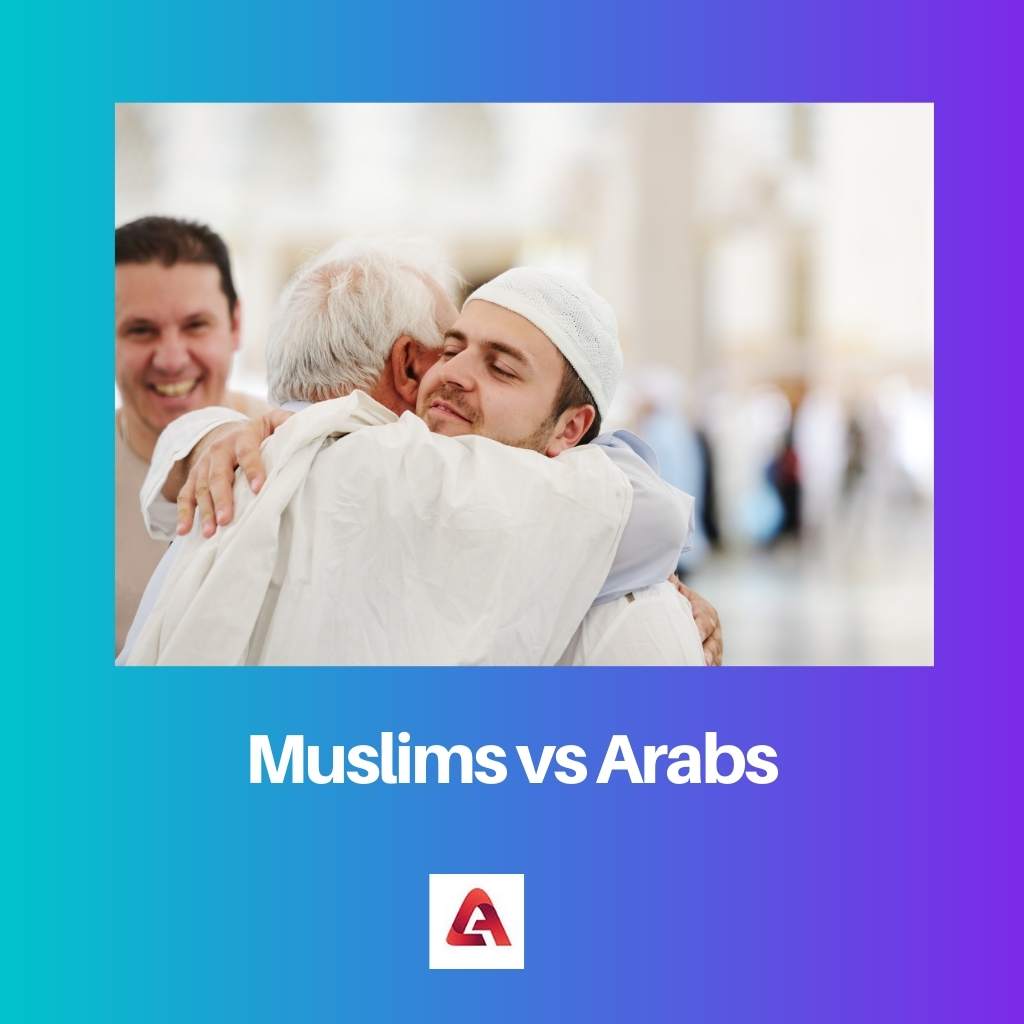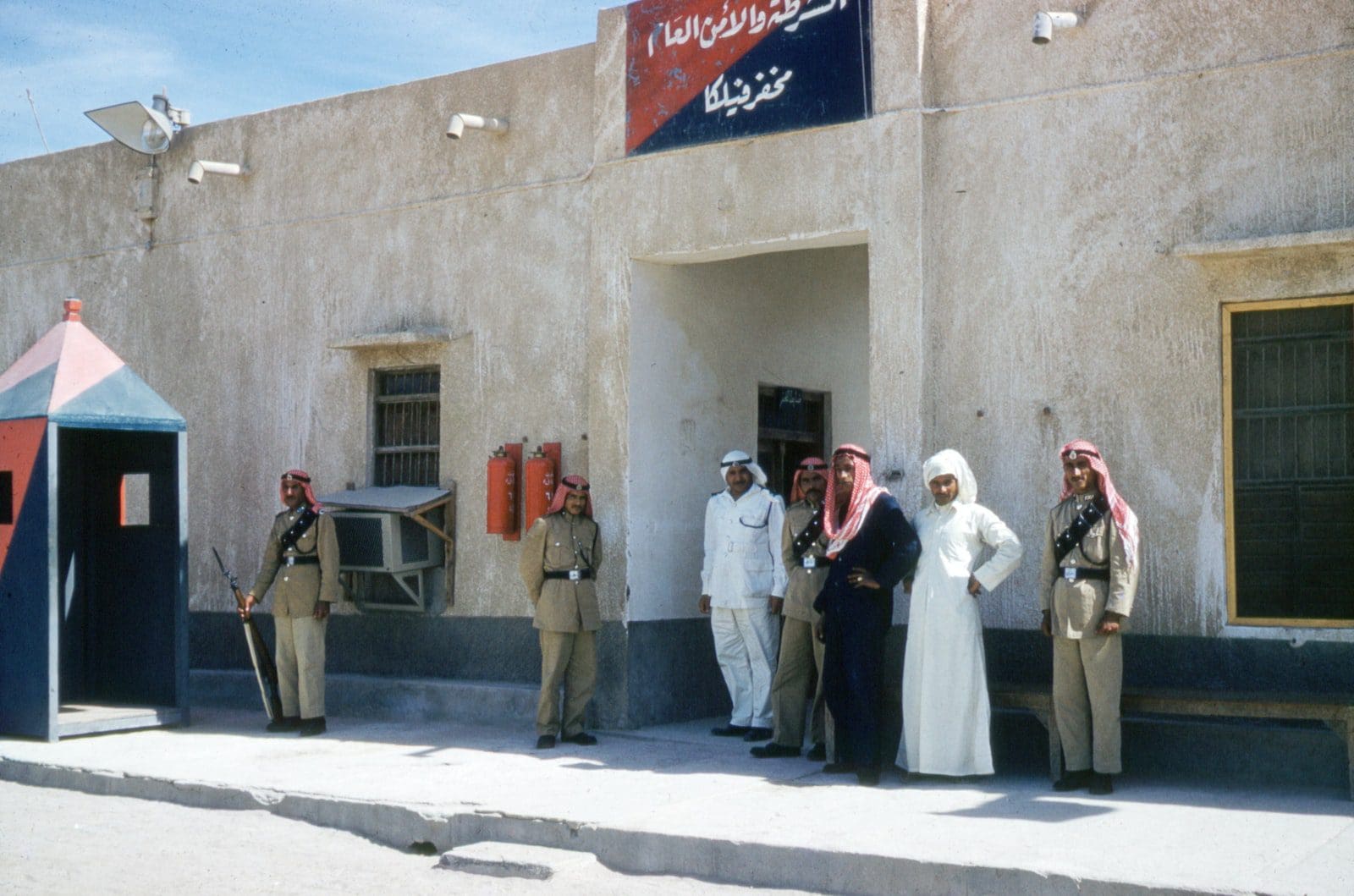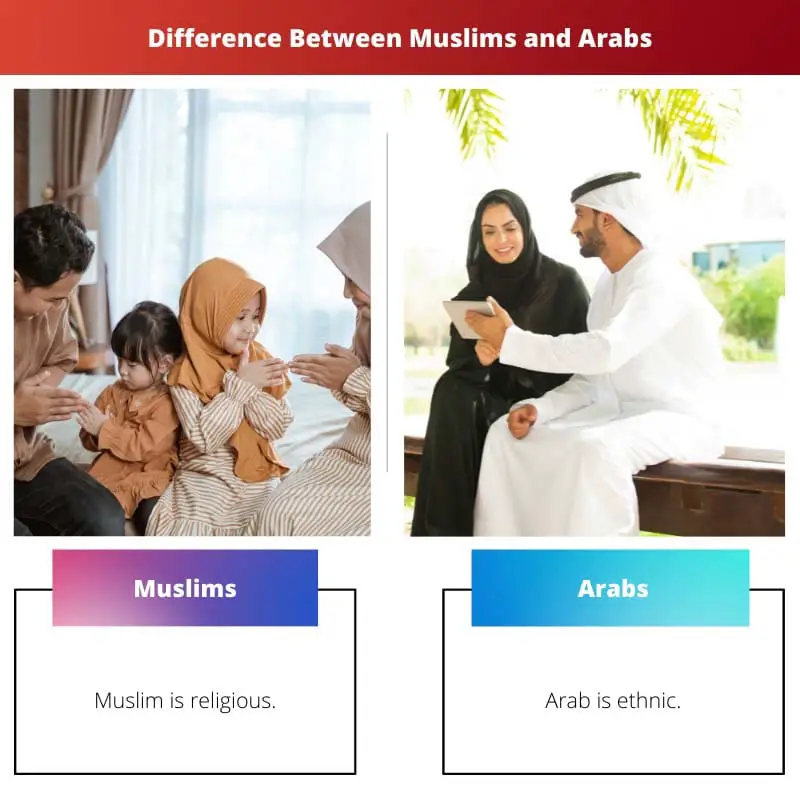Globally all people are distributed into various religions and nationalities. Two among them are Muslims and Arabs. Although Muslims and Arabs are confused, they are not synonymous terms.
Neither most Muslims are Arabic nor most Arabs are Muslims. The main confusion between the terms Muslims and Arabs arises because Arabic is the primary native tongue of most Islamic religious people.
Key Takeaways
- Muslims follow the religion of Islam and believe in one God and the teachings of the prophet Muhammad. At the same time, Arabs are an ethnic group with a common language and culture, mostly in the Middle East and North Africa.
- Islam is a religion practised by people of various ethnicities worldwide, while Arab culture extends beyond belief and includes art, music, and cuisine.
- Not all Arabs are Muslims, and not all Muslims are Arabs. Muslims can be of any ethnicity, and there are many non-Arab Muslim countries, such as Indonesia, Pakistan, and Turkey.
Muslims vs. Arabs
Muslims are the people who follow the religion Islam. Muslims have a high population. Muslims can speak different languages. Sixty percent muslims live in Asia. As muslims can speak any language, it is easy for them to settle anywhere. Arab is a kind of nationality. Arab people have freedom to follow any religion. Arabs speak arabic language. Arabs have less population.

Muslim is religious. Muslims use different types of languages, not only Urdu or its Islamic language, as they can settle anywhere globally.
Arab is ethnic. Arabs use the Arabic language for communication—the origin of Arabs from Syria, Saudi Arabia, Iraq, or the Middle East. Arab refers to a type of nationality or ethnicity.
Comparison Table
| Parameters of Comparison | Muslims | Arabs |
|---|---|---|
| Nature | Muslim is religious. | Arab is ethnic. |
| Language | Muslims use different types of languages and not only Urdu or its Islamic language. | Arabs use the Arabic language for communication. |
| Origin | The origin of Muslims is mainly from Asia and every corner of the other continents. | The origin of Arabs from Syria, Saudi Arabia, and Iraq or the Middle East. |
| Follower | Muslim refers to a person who follows Islam as its religion and keeps faith in Allah. | Arab refers to a type of nationality or ethnicity. |
| Population | The population of Muslims is high. | The population of Arabs is comparatively much lower than Muslims. |
| Native Tongue | Muslims have no restrictions on native tongues. They can speak any language from all over the world. | Arabs speak the Arabic language or Arabian. |
| Religion | Muslims are expected to follow Islam as their religion or faith. | Arabs can follow any religion they wish to or are born to, like Muslims, Christian,s or even Jewish. |
What are Muslims?
The individuals who embrace Muslim as their sole religion and faith are called Muslims. The spread of Muslims is not limited to any place in the world. This is the third-largest religion in the world.
Around 60% of the Muslim population is spread throughout the Asian Continent. And the rest, about 40% of the people, are concentrated in Africa, the Middle East, Australia, and North and South America.

What are Arabs?
Arabs are considered people from the Middle East and settle in Arabian places like Saudi Arabia, United Arab Emirates, Iraq, Syria, etc. Thus, Arabs are a specific kind of nationality that is formed internationally.
There are two types of Arabs. The original Arabs are those who have been living in the Arabian Peninsula since time immemorial. And the other type of Arabs is the New Arabs.

Main Differences Between Muslims and Arabs
- Muslims have no restrictions on native tongues. They can speak any language from all over the world. However, Arabs speak the Arabic language or Arabian.
- Muslims are expected to follow Islam as their religion or faith. On the other hand, Arabs can follow any religion they wish to or are born to, like they can be Muslims, Christian, or even Jewish.




